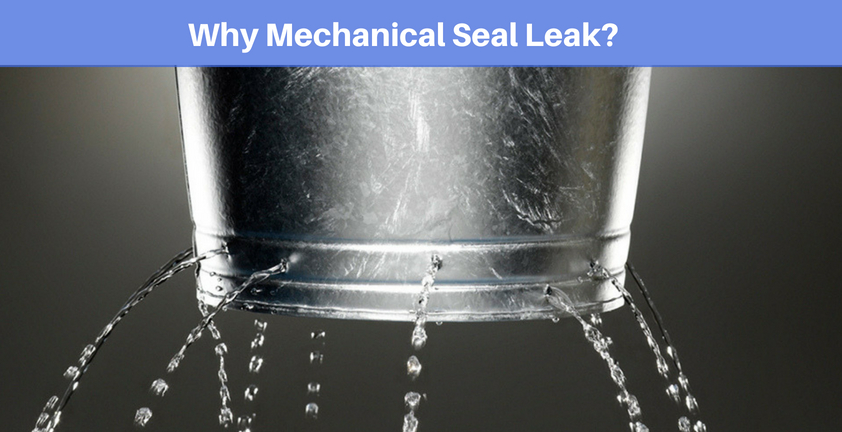Causes of Mechanical Seal leakage
You won’t like the mechanical seal to leak ever, but it is not possible. All mechanical seals leak after some time due to wear and tear.
You can prolong the occurrence of leakage by taking diligent care of the seals, but it is impossible to avoid itcompletely.
As we know the mechanical seal has two components; a stationary member called ‘seat’ and a rotating member called ‘head’.
The head is statically sealed to the pump shaft, and it rotates with it. The seat is statically sealed to a stationary cover.
When the stationary and rotating parts are in near contact, the primary sealing takes place.
‘Hard contact’ can cause leakage
Hard contact of the seal faces means the rotation without lubrication builds up friction. That causes damage to the seal face.
It is one cause of leakage. Hence, utmost care is required not to run the seal faces dry.
Thankfully, the design of mechanical seals is such that a thin film of liquid always exists between the seal faces.
When the seal operates flawlessly, the thin film leaks to the side where the pressure is low. It means outside the pump.
In a single type mechanical seal pump, the overflow liquid is handled by the pump. In double or tandem type pumps, a barrier fluid is placed between the seals.
The barrier fluid is supplied in such a way that one of the seals is exposed to the barrier fluid only. The inner seal is exposed to the liquid that is being pumped.
In some pumps, pressurized gas is used to prevent the leaking.
Leakage in volatile liquid pumps
While pumping volatile liquids, the fluid friction increases when it traverses through the seal faces. Thus, the fluid vaporizes and doesn’t show a visible leakage.
However, if the liquid is not volatile, we can see an accumulation of leakage outside the pump.
A few parameters that determine the amount of leakage in the seal are:
- Type of liquid to be sealed
- Sealing pressure
- Speed of rotation
- Size of mechanical seals
- Face loading
- Material and finishing of the seal
- Temperature
- Pressure
- The viscosity of the liquid
Some seals are designed for high face loads. Here the leakage is minimal, but the seal doesn’t last long. In light face load, the seals last long, but there is a high probability of leakage.
Hence, it is critically important to choose the right type of seal in the pump.
Leak-Pack is ISO 9001:2008 certified company and one of the best mechanical seals suppliers, manufacturers and exporters in India, providing solutions to all types of leakages by manufacturing Mechanical Seals and Sealing Components as per customer’s drawings, samples or requirements. To know more about Mechanical Seal call on +91-(2739) 271592 or email at info@leakpack.com.
Read More Articles:

